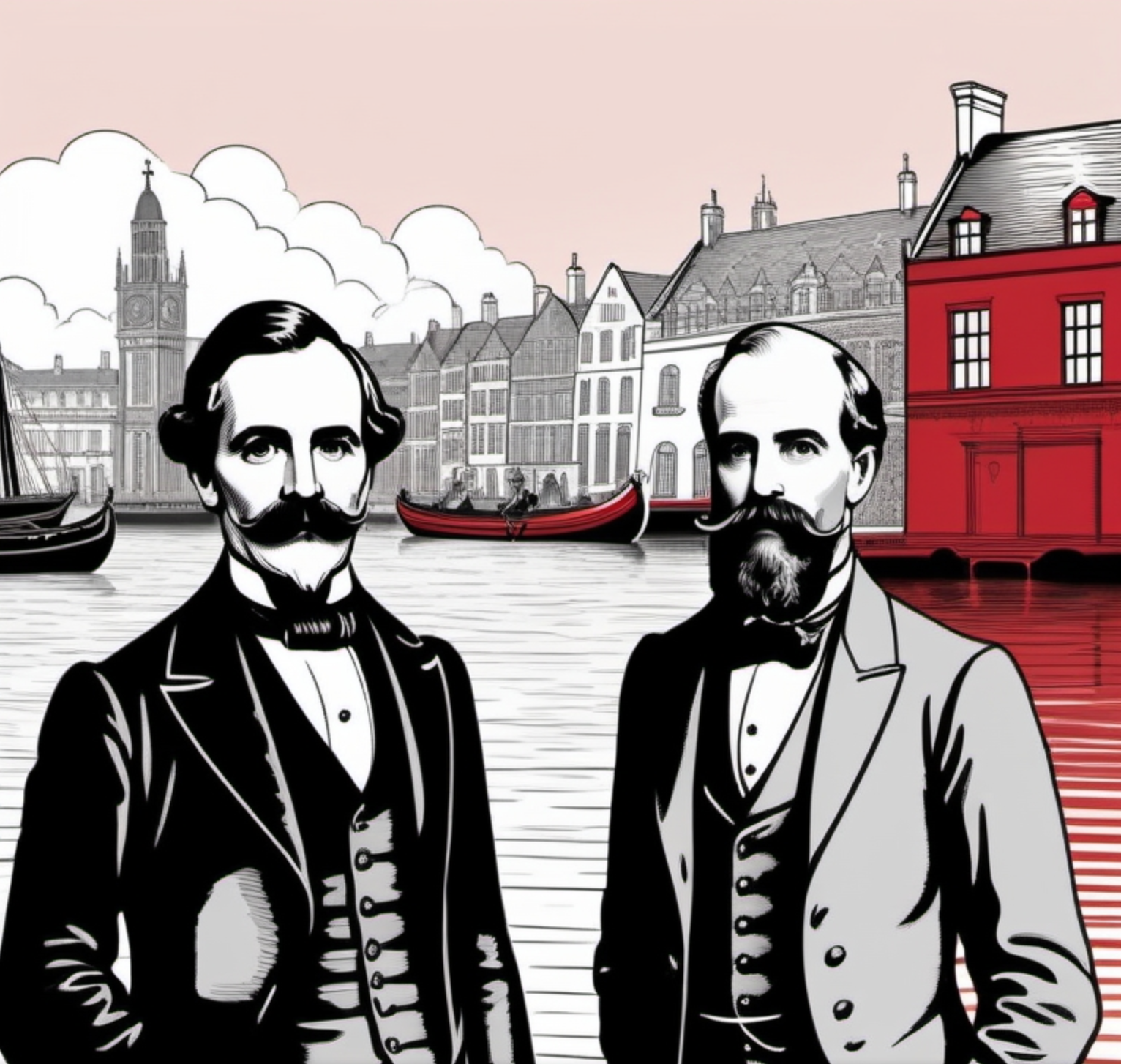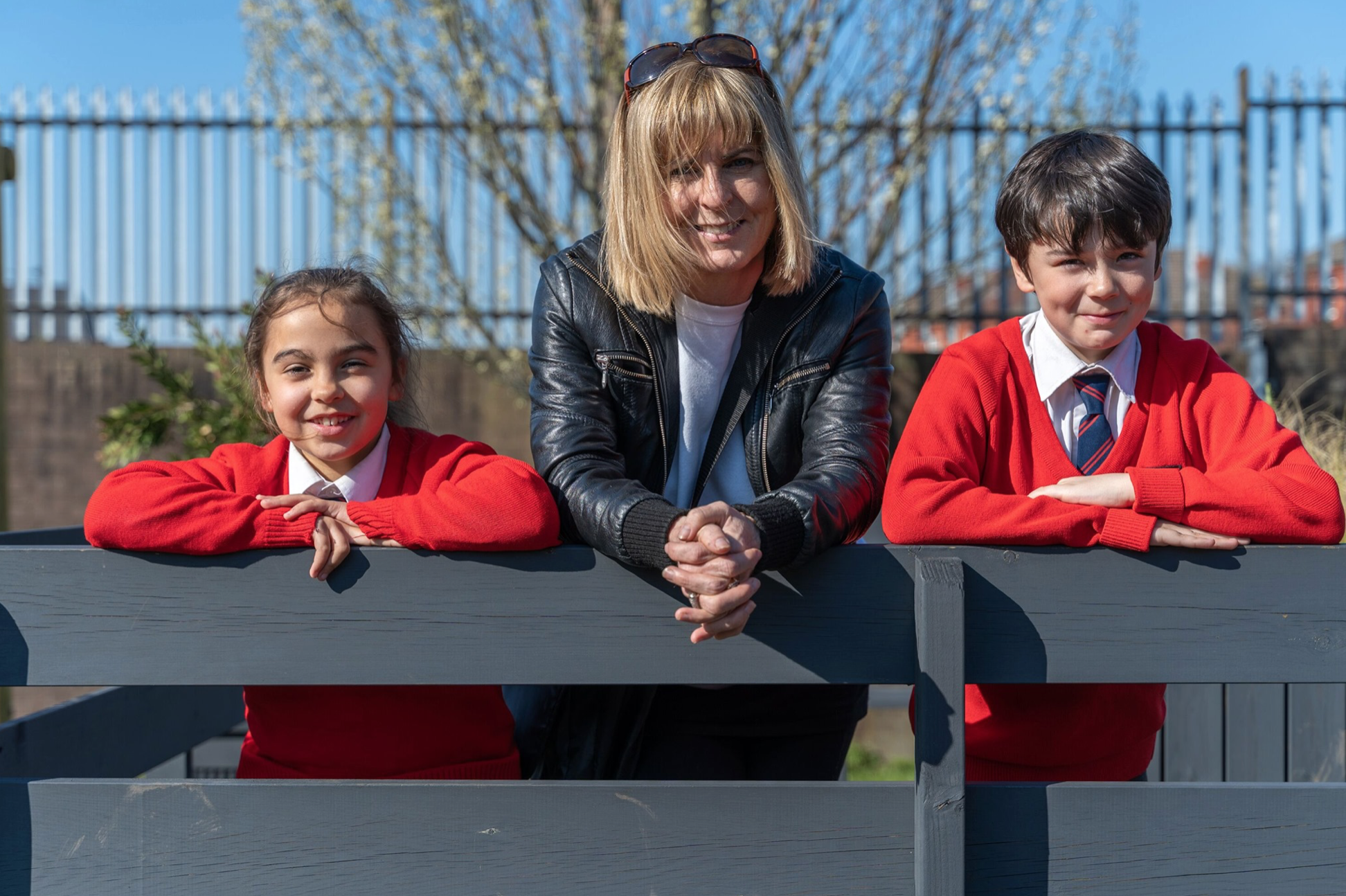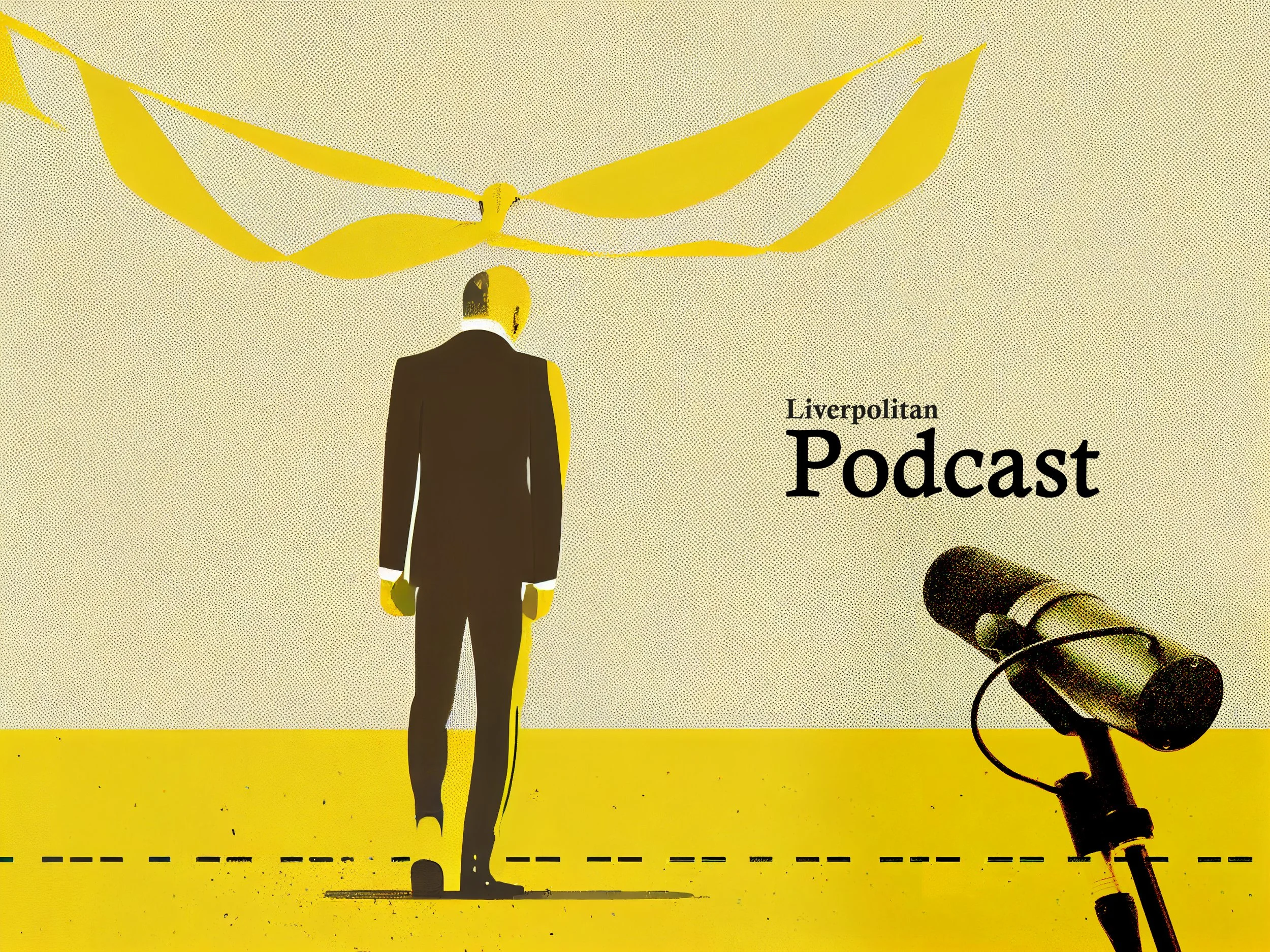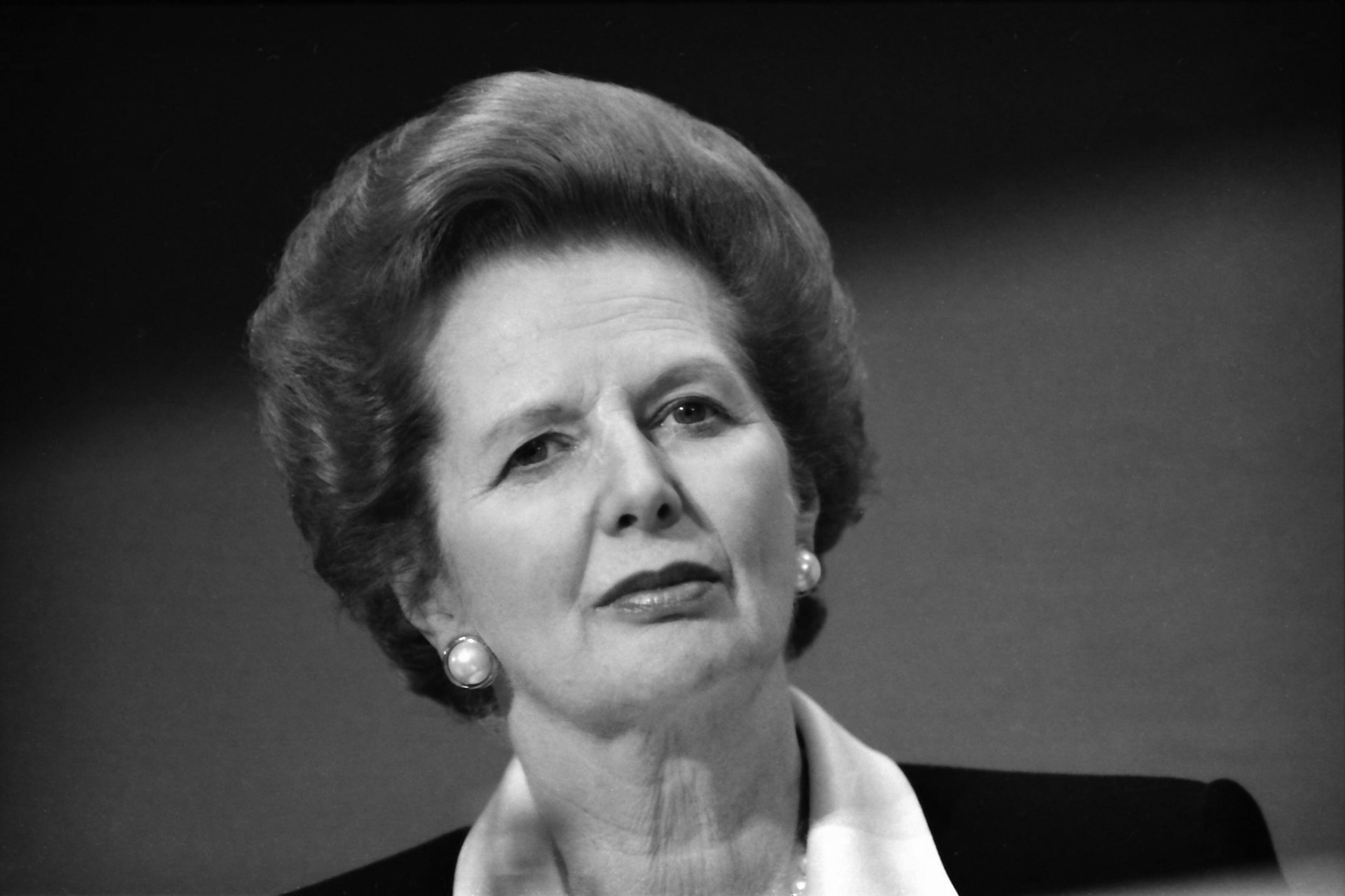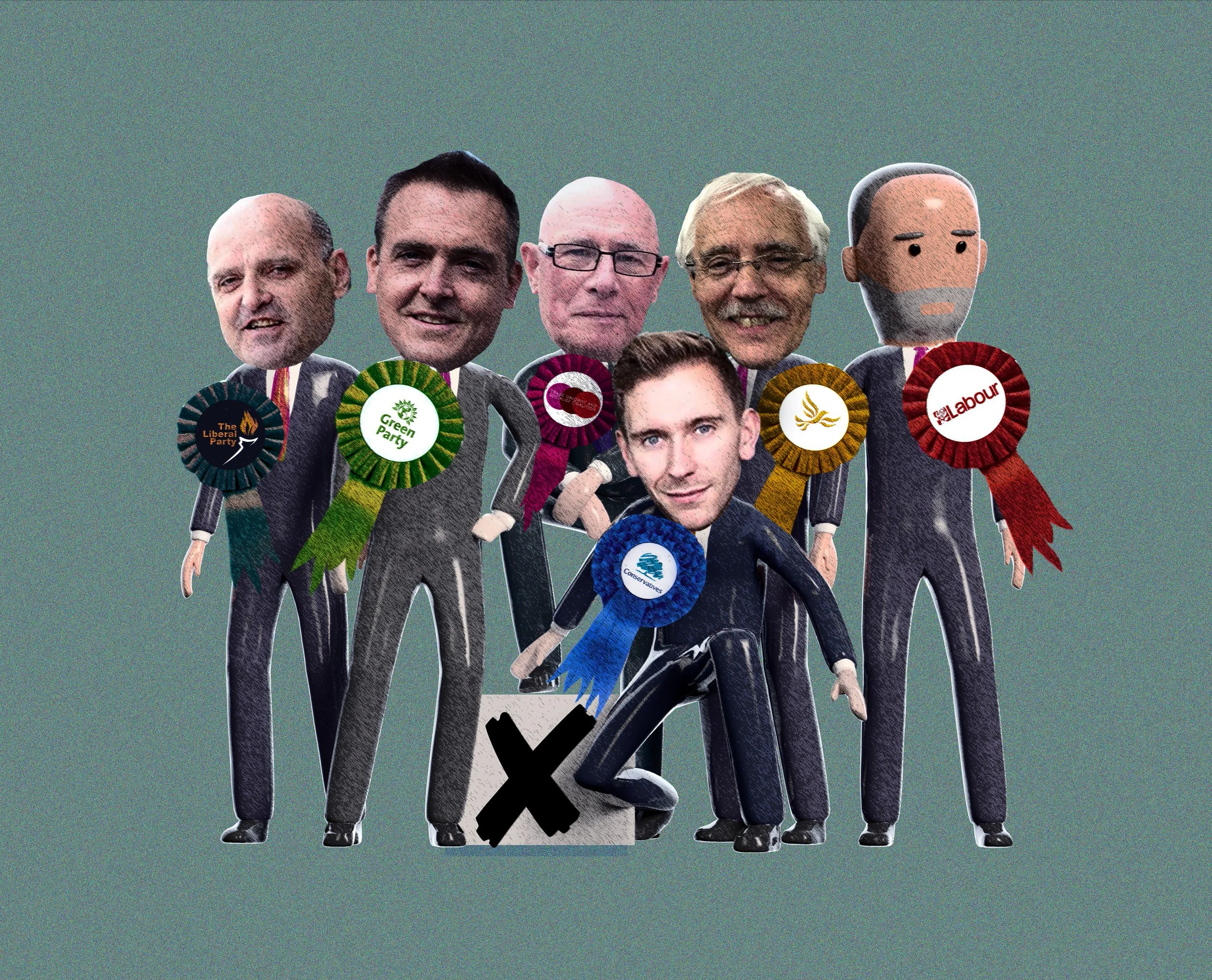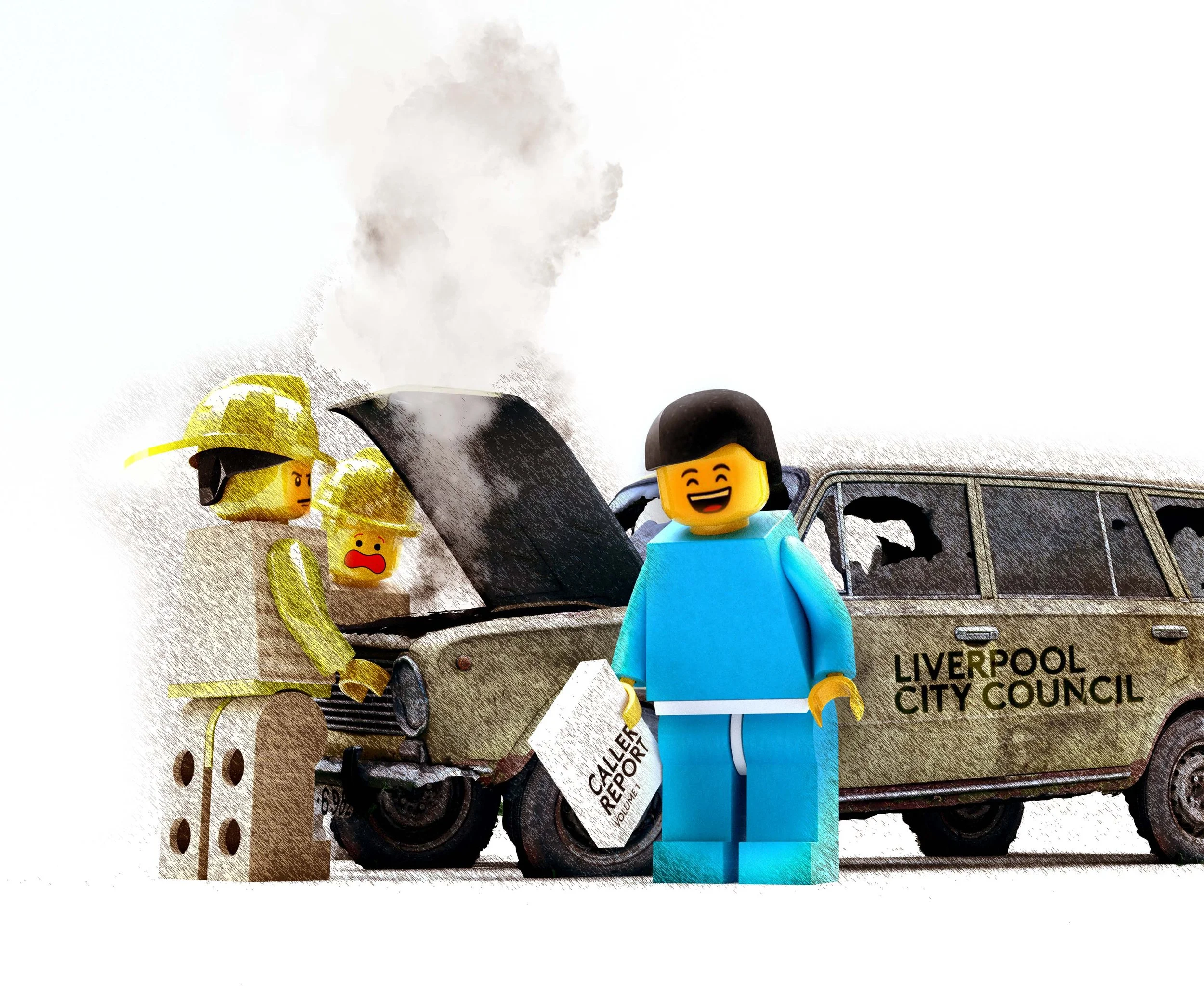Recent features
Fear, tribalism and lies: the woman fighting Liverpool’s anti-Tory vote
Katie Burgess wanted to smash Liverpool’s red wall. Standing as the Conservative candidate in the Liverpool Mayoral election in May 2021, she secured 4.14% of the vote. But as any political blue will tell you, our city is the toughest of nuts to crack. This is her account of life on the (mostly virtual) campaign trail.
Katie Burgess
Katie Burgess wanted to smash Liverpool’s red wall. Standing as the Conservative candidate in the Liverpool Mayoral election in May 2021, she secured 4.14% of the vote. But as any political blue will tell you, our city is the toughest of nuts to crack. This is her account of life on the (mostly virtual) campaign trail.
It was a rainy night on Zoom and we were a year into the pandemic. Words like ‘lockdown’, ‘furlough’ and ‘bubble’ were now in daily use (as was Zoom) and social distancing, face masks and homeworking were the new ‘normals’. I’d spent the majority of the year in my own four walls, ‘keeping safe’, not least because I am one of England’s estimated 3.7m shielders or to use the latest fancy title, the ‘clinically extremely vulnerable’. That means I cannot have the Covid vaccine due to medical contraindications. With no end to the pandemic in sight, people like me have had to take extra precautions to reduce the risk to our lives. But hiding away from civilisation is not really my style and no special title was going to stop me doing what I knew needed to be done. Besides, I was about to gain a new title – one chosen by the members of the Conservative Party. That’s right, I was to be their candidate for the Liverpool City Mayor Election in May 2021. On my very small laptop screen, I watched as the vote had passed in my favour. I accepted with just a few words. The fun starts here I thought…
I’m no stranger to a challenge. I grew up in a working class, Labour-voting household in Crosby. My dad worked, my mum stayed at home. Life was comfortable but not luxurious. We lived as we could afford and I could have no complaints. Then at 12, I had to learn to walk again after a car accident left me with serious injuries, three years of reconstructive surgery and the need to do a lot of growing up, very quickly. Even now, I still battle ill health on a daily basis. I started my first business in catering at the age of 17 and it was a challenge. Luckily, I wasn’t old enough to drink at the time, and thankfully never started, but I’d have understood the temptation. As a fledgling entrepreneur, I had to learn the rules of commerce the hard way. Now, call it bravery or insanity, I was set to become the face of the Conservative Party in its most hostile political battleground, and boy does this city need new leadership.
Call it bravery or insanity, I was set to become the face of the Conservative Party in its most hostile political battleground.
Most of the same issues that faced Liverpool in the 2016 election are of course unaddressed – unemployment, high crime, lack of affordable housing, the need to raise skills and educational attainment, and deliver better quality jobs, not to mention a council delivering poor value for money for taxpayers. For that reason my manifesto shared many of the policies from earlier campaigns. But two more urgent issues had appeared since then – the corruption at the heart of our local government and the need for post-Covid recovery – a perfect opportunity for the city to excel. They became central to my campaign and are still the issues I believe are the biggest facing the city right now. The protection of our city's cultural heritage was also a huge issue for me, from preventing the erasure of our street names and statues and everything in-between and this was reflected in the opinions of those who took the time to contact me and discuss their concerns. And of course, just weeks ago the city lost its UNESCO World Heritage Status, which I believe could have been avoided. It’s more than possible for the city to progress and prosper without losing its past identity.
Back to life at the beginning of the Mayoral race and that nomination. Outside of the Conservative Party, my social groups contain very few blue voters, but while my red-voting friends and colleagues weren’t exactly supportive of my candidacy, there was no real vitriol or broken friendships. There was the odd comment like “but your such a lovely, generous person. How come you’re a Tory?” and a family member once advised me that my grandparents “must be spinning in their graves”. “Perhaps,” I told her, “if you’d not had them cremated, that might have been true, but as I remember it, they were proud that I had my own mind and fought for what I believed in, just like they’d always encouraged me to.”
Apparently fortune favours the brave but there’s an exception to every rule and I was under no illusions. A win was at best extremely unlikely and realistically, nigh on impossible. Liverpool was living under heavier Covid restrictions than most of the country and had been for some time. The Conservative government had made the city region a special case and thrown lots of positives at it such as piloting the first attempt at mass city-wide Covid testing, and green-lighting the first trial night club event for 6,000 party goers. However, such is the electorate, negative factors were more likely to be remembered when they headed for the ballot box. In any case, had I woken on polling day to the news that Prime Minister, Boris Johnson had awarded every city resident a £1m tax-free Liverpool Personal Covid Relief Payment, I’d have still suggested those fancying a bet nip to their nearest bookmakers to place their money on a Labour victory.
Feelings within the Conservative Party were that we were likely to lose some ground in this election. We were staring into the abyss of a campaign under Covid restrictions meaning it was harder than ever to get face-to-face with the voters. Travelling was restricted even in local areas, so our volunteers could not hit the streets in the way we’d all prefer.
Support from the party, both locally and nationally, tended to be found more at the end of the telephone line and by email rather than in person. And as a Covid shielder, I faced even more restrictions than most. So why was I doing this? Why would anybody take on this role in these circumstances? Democracy, I believe, only survives when other voices shout too and I will fight for democracy until my dying breath. I consider it imperative that every voter has the opportunity to vote Conservative. I believe in those policies and values (most of them at least) and what’s more, I can tell you why I do, a trait that seems to be lacking in the average voter. I’ve had many conversations with people who agree with every Conservative word I preach, then usually say something like “you’re right, but we have to vote Labour here don’t we?” often with a tone of regret. I generally resort to one of my favourite words in reply: “Why?” and it’s not uncommon to be greeted with a deafening silence. I have no need or desire to impress the Tory hierarchy or CCHQ as it’s known and I’m not going to trade on my identity as a woman. I don’t think we “need more females” in such positions or indeed any more diversity boxes ticked. You can see I’m female and a lot of other things too; I didn’t feel the need to spout about it during the campaign and never have. I firmly believe that what we need are the right people in the right places doing the right things. Meritocracy is not a dirty word. Discrimination whether standard or positive is abhorrent and I’ll stand against it at every turn. I stood because I needed to. Because Liverpool needed me to.
So my ‘Covid-time’ campaign was unrecognisable from what it would have been in normal times. There could be no door knocking, leafleting was limited, hustings went online and were generally plagued with technology issues. Those hustings that were held in person I was excluded from because of my Shielder status, but I provided statements to them all to get across that Conservative message. Whether they were read out or not, I will never know of course, except for one, on BBC TV, where my contributions were used to start each round of debate. I was disappointed for missing at least the opportunity to call out the other candidates on their claims and accusations. It seems the Tories are always to blame at a city council where there is not one Tory anything or anyone. The same applies to the five parliamentary constituencies of Liverpool it seems, despite all being occupied by Labour MPs too. I wonder who they would blame if there was a Labour government in Westminster? One of my opponents even questioned on Twitter if I existed. Quite concerning for a man who I’ve met on several occasions and who holds such a high position at the disgraced council already. Perhaps a short memory is required to hold those roles.
Campaign material had to be created and so written pieces and photographs were needed quickly, with numerous requests and deadlines generally short. As a shielder, unable to venture out in public, the usual options for photo opportunities were impossible. As one who generally stands behind a camera rather than in front, finding current pictures was a real challenge and taking new ones was not an option owing to the unfortunate timing of minor eye surgery which had left me looking like a mugging victim. So a desperate call went out to friends and family for anything they may have which could be forwarded onto the Conservative press department. What we were left with was not ideal.
Social media, an alien concept to me and a virtual cesspit, became a daily presence in my life. Messages, letters and emails were plentiful ranging from the sweet to the sour to downright hateful, X-rated suggestions with pictures provided to illustrate the point, just in case I misunderstood. I also received dinner date invitations and even marriage proposals - all of the above politely refused. A break from campaigning was called by order of the party, quite correctly in respect to the sad loss of the Duke of Edinburgh. The Queen as ever provided a wonderful example of dignity to us all.
Labour Councillor, Nick Small, took to Twitter to comment that my party had to go “all the way to Crosby for a candidate” proving there are no limits to small-minded parochialism.
Plenty wanted to tell me “you’re not even a Scouser” and indeed they did most days. I’ve never claimed to be. I was born in the city centre and raised in Sefton. I’m proud of both facts. Who one defines as a Scouser is, like most things, up for debate and I support everybody’s right to their own opinion. I also stood in Liverpool Central ward as a local council candidate against (sitting) Labour opponent, Christine Banks. Her fellow Labour Councillor, Nick Small, also of the same constituency, took to Twitter to comment, negatively it seemed, that my party had had to go “all the way to Crosby to find a candidate”. All 6.7 miles of it no less, proving there are no limits to small-minded parochialism.
I received an enquiry from a journalist asking why I hadn’t attended a hustings hosted by Black Lives Matter (BLM) and Extinction Rebellion. I provided the simple and honest answer that I was undergoing a scan at the time, which I’d waited 11 months for. Nothing was ever published.
“Another day, another threat” became a regular joke in our house, as the abusive messages rolled in, sometimes multiple times a day. They say the pen is mightier than the sword but the keyboard is rather weak in my experience. I wondered how many of the trolls would have bothered if they’d had to go to the expense of a stamp? While taking my milk in, I was doorstepped one day, late in the campaign by a journalist who seemed to think that I was unvaccinated due to pregnancy (the truth was far less exciting). She wanted to know how I planned to undertake the job of Mayor when surely I would have to go on maternity leave at some point. While I was amused to think that she thought I had a hope of winning, I sadly had to confirm that there had been no immaculate conception during my now 13 months of social distancing and shielding in singledom. Mind you, I said, if she thought giving birth to the new Messiah would aid my campaign, I’d certainly be willing to give it a try. She looked blankly at me and promptly left. I’m not sure she understood the reference to Christian doctrine. The local media on the whole though were OK to me – reactions ranged all the way from sympathetic and polite but neutral, to disinterested and some were a little aggressive. Pretty much as expected. Many articles covering the election, especially in the left-wing press simply failed to mention that I was running at all. Others quoting most, if not all of the other candidates simply added something on the lines of “also standing is Conservative, Katie Burgess”, usually when I hadn’t even been approached for comment. Manners cost nothing though and every request, message and note to our campaign team was answered one way or another and regardless of tone or context, with a little help from those Conservative friends.
As a candidate I was invited to an online meeting to hear what Max Caller had to say, straight from the horse’s mouth, about his investigation into the city council. The report itself made for sickening reading, but to hear Mr Caller, an out-of-towner, describe his dreadful experiences of my home town council was soul-destroying, causing me to shed tears of anger and sorrow in equal measure. Some of his revelations sounded more akin to North Korea than North John Street. My own laptop camera wasn’t working that day, I suspect an act of God, but I watched on the screen the faces of the other candidates, some of whom were already prominent members of that condemned council, and hoped for signs of remorse. I’m still hoping.
The hardest day of the campaign didn’t start well and got worse. I awoke that morning with breathing difficulties and a fever that the American singer, Peggy Lee would have been proud of. I’d contracted a virus, though thankfully, not Covid-19 – I prefer not to follow the latest trends. No sooner had I opened my eyes, when the news reached me that somebody had thrown a brick through the window of my admin office. While I’ll never know for sure if it was targeted at my campaign, I’ll always have my suspicions. I’d not even seen inside that office for quite some time, but adorning the main wall is a framed copy of the poem ‘No Enemies’ by Charles Mackay – “If you have none, small is the work that you have done”, he wrote. Life imitating art in the mayoral election. The day continued with the news that at the last minute a planned “on the street” campaigning event would have to move online meaning we reached far less people and did it in a far more impersonable way. Covid throws up obstacles at every turn but I’m eternally grateful for the efforts of all the volunteers. Then the really bad news reached us that a family friend had passed away and I found myself, not for the first time, unable to run, open-armed to the aid of a grieving friend as I normally would have. All this and it was not even lunchtime! At least a local emergency glazier did well that day. I do love to champion small business.
Liverpool’s Labour vote is actually an anti-Tory vote created out of fear, tribalism and downright lies, handed from one generation to the next like a dominant gene.
Polling day dawned. Normally, this would be the opportunity for one last push - taking to the streets with activists, meeting voters, making visits to polling stations. None of that happened. Instead, it consisted of Covid testing, a hospital appointment, discussions with the police about the numerous threats I’d received, and fielding more telephone calls than a switchboard operator. One of which came from Amanda Milling, Conservative Party Co-Chairman. She wished me well, thanked me on behalf of the party and informed me that Boris Johnson had been in Hartlepool. I told her that out of the two, it was certainly the ‘pool’ with the much better chance and seeing that go blue too would make my day.
After much debate and medical advice, I was able to attend the socially distanced, Covid-safe election count, which took place the day after the election. The winner was announced and the collective Conservative hope for a new start for Liverpool was dashed. I listened to Joanne Anderson, the newly elected Labour Mayor, make her victory speech, but it seemed her gender and ethnicity were more important for us to hear about than her policies, and of course she laid the blame for everything that her Conservative-less, Labour council had done, at the door of the Tories. To my ears, there was no condemnation for the administration of which she was already a part, no level of shame and no indication of any comprehension of the challenge awaiting her. It seemed to me that this Mayor Anderson had certainly learned from the previous one, though sadly in all the wrong ways. It’s been four months since the election and the disappointments are still vast. Mayor Anderson herself has certainly not said or done anything to inspire any confidence in me and I’ve not heard anything positive from the rest of her cabinet either. The city deserves and should demand much better and much more. It can only do so at the ballot box. A prime opportunity, wasted. Nothing has changed.
So how does one pull a city, as mighty and stoical as Liverpool out of the political wilderness? By starting with an unpopular truth. You may not like it, but it’s hard to argue with. Liverpool’s Labour vote is actually an anti-Tory vote created out of fear, tribalism and downright lies, handed down from one generation to the next like a dominant gene from a Labour Party intent on perpetuating the fallacy (for their own ends) that Conservatives hate Liverpool. They do not.
The voters are suffering under an illusion, their very own Scouse Stockholm Syndrome, while the remainder suffer from disillusion, those being the almost 70% (the silent majority) who don’t even turn up to vote. Such is the feeling of repression and indifference. Where else on earth would the voters democratically re-elect a regime who’s heinous abuse of them had been exposed just weeks before? The Conservative Party have a lot to offer Liverpool and would turn this city into the behemoth that it should be. Convincing the electorate of this message, when the word is… ‘Conservatives are bad news’, is a daunting task but an essential one. In the right hands, this city has huge potential with acres and acres of undeveloped, brownfield plots and incomplete, abandoned developments. It could attract and draw-in more people wanting to raise families and start businesses, and do a better job of appealing to inward investors, but it fails to attract them because of the regional economy’s stagnant state and the lack of promise of anything different.
The voters had other options besides Labour and Conservative of course - five of them to be precise, including Stephen Yip, who did better than any previous Independent, likely thanks to rebellious Labour voters who’d finally had enough. But still the old unfaithful hung on. I’d have been shocked if they hadn’t, but it was certainly progress to see this election go to the second vote, a first for the city. But it’s progress that needs to go much further, much faster. Liverpool is a Labour city on paper but when one considers the poor turnout in the mayoral election (30.51%) and the Labour candidate’s share of the vote in the first round (38.51%) that equates to just 11.8% of the Liverpool electorate who want them in office. And that’s assuming that every one of those voters actually knows what they are voting for and has made an informed decision. I often play the “rule of three” and find it a good marker in most things. I give people three chances in various circumstances and call it on the outcome. When in conversation with a typical Liverpool Labour voter I ask them to name me their 3 favourite Labour policies. I can’t recall a single time any of them could.
Much like my beliefs were formed at a young age, I believe the answer to a political revolution lies with educating future generations. Political allegiance should not be inherited but formed with an open mind, free will and access to the facts. People need to hear the grim truth of life under Labour, not the Grimms’ Fairytale fiction of Tories as playground bogeymen. I don’t want people to take my word for it. I want them to seek the truth for themselves. The truth of Liverpool is right in front of everybody’s eyes. It seems there really is none so blind as those who cannot or perhaps will not see. In July the new regime at the council voted unanimously to accept the findings of the Caller Report and implement all of the recommendations made. This is at a cost of £2.5m to the Liverpool taxpayer. A huge bill just to start putting right the wrongs of those, still gifted positions of power. One can only hope that the city council, now under commissioner control for the next three years, will be forced to bring about long term change.
I’ve said before and I’ll say it again, likely many times - I love Liverpool, but politically at least, I find it very difficult to like. But it’s worth remembering, that it’s just a small minority holding the city captive. We need to engage with the current non-voters, listen to their concerns and encourage them to use their vote with conviction to elicit the change that the city’s long-term survival depends upon.
As for my result? 4.14% (up from 3.62% the last time around) - actually an increase so against expectations, ground gained and all things considered, a bit of a triumph. Meanwhile, upon hearing the result, my predecessor as Conservative Mayoral candidate, Tony Caldeira, standing loyally there at my socially-distanced side for support, had smiling eyes for me atop his Covid face mask, and so all was well. Our end-of-campaign hugs, however, would still have to wait…
So the race for the future of Liverpool goes on. With my fellow Conservatives we’ll keep on running, never hiding, in every election, in every seat, in every ward, every time. No fear.
Share this article
Where’s our levelling up, Whitehall…?
If you’ve had the good sense to avoid much of the news media over the last year, one of the major political announcements beyond the pandemic has been that of major relocations of the Civil Service from London to the regions. The so-called ‘levelling up’ agenda is the narrative driving this major change in policy and we’ve been watching keenly ever since to discover how ambitiously and fairly it is being implemented. This is clearly long overdue in a nation that is one of the most politically and economically centralised countries in the western world, and comes 15 years after it was last seriously discussed following the Lyons Review, which largely failed to deliver any meaningful change.
Liverpolitan Contributor
If you’ve had the good sense to avoid much of the news media over the last year, one of the major political announcements beyond the pandemic has been that of major relocations of the Civil Service from London to the regions.
The so-called ‘levelling up’ agenda is the narrative driving this major change in policy and we’ve been watching keenly ever since to discover how ambitiously and fairly it is being implemented. This is clearly long overdue in a nation that is one of the most politically and economically centralised countries in the western world, and comes 15 years after it was last seriously discussed following the Lyons Review, which largely failed to deliver any meaningful change. Opponents of the idea usually point to the Office for National Statistics move to Newport, which failed to generate much of a boost to its local economy, but I’m not sure what they really expected from relocating such a specific service function to a mid-sized city with little potential to leverage commercial multiplier benefits. Other relocations of civil service jobs and functions have shown limited success due to them effectively being the outsourcing of lower grade roles rather than senior policymakers with real influence. The Government’s own statistics show that over two-thirds of the most senior civil servants remain based in London.
Before we explore this theme further, one of the many impacts of the pandemic has been to change where people want to live and work. This is not to argue that traditional offices, or the town and city centres where they are located, are set for a prolonged demise. Far from it. Offices will continue to thrive as centres for work, but in a repurposed way that maximises a more flexible, collaborative and agile working culture. But increasingly, London does appear to be falling out of favour. Over the last year many thousands of people have escaped the capital for a better quality of life in towns, cities and villages all over the UK. This includes many who have moved back to the Liverpool Metropolitan Region, so it was no surprise to read a recent article in This is Money showing that house price growth in Liverpool over the last 12 months has been the highest of any city in the UK, and more than five times that of London. There are numerous reasons for this, but one significant contributing factor is undoubtedly people escaping the high prices of the capital to return back to where they grew up or attended university. One could describe this as a reversing of the brain-drain effect that all cities have suffered to London over many decades.
Location of Senior Civil Service roles
Source: Moving Out: Making A Success of Civil Service Relocation; IFG Insight November 2020; Institute For Government
There is no doubt that the Liverpool Metropolitan Region has a compelling case for people to relocate to as a great place to live and work. It’s human nature for us to be drawn to water, so the great natural assets we have in the River Mersey, Wirral peninsula and the miles of beaches and sand-dunes on the Sefton coast are a huge draw. Only a little further afield - a mere stones-throw away - lies the mountains and coastlines of North Wales. Then there is the depth of the arts and culture scene and their institutions, quite possibly unmatched in any other city outside London. Liverpool is probably the most architecturally significant regional city, with more listed buildings than any other, and is home to many beautiful parks. It also has a thriving independent food scene and a nightlife that is frequently regarded as the best in the UK. There is good reason why the people who visit Liverpool often come back time and time again. The start of this shift in focus away from the capital is hugely important to our nation and its economic and cultural future.
Back to the levelling up agenda, and it’s worth considering the moves of the BBC. Although not directly controlled by the state, large swathes of the institution have already upped and moved to Manchester/Salford over the last decade to ‘benefit the North’. It now provides jobs and opportunities for more than 3000 people in that city region and has added significant multiplier benefits to its local economy. Currently, the BBC only employs around 30 people in the Liverpool Metropolitan Region, although there is some talk that they might open a small training hub both here and in Hull. This is a matter which I’m sure we’ll come back to in the future. Meanwhile, back in 2018, there was the competition between the major regional cities to secure the new Channel 4 HQ, a selection process which did not give the impression of being particularly fair or transparent. Although the government does not get to tell these organisations where to move, as publicly-owned bodies their decision-making often follows the political theme and thought processes of the day.
The start of this shift in focus away from the capital is hugely important to our nation and its economic and cultural future.
What department relocations have been announced so far?
In recent months, we have seen news of a new Treasury campus being established in Darlington, albeit with a little nod and wink from Rishi to his Conservative Tees Valley Metro Mayor friend, Ben Houchen. Meanwhile, Leeds was gifted the UK Infrastructure Bank plus a new Bank of England hub, both of which are likely to provide an extremely positive influence on the prosperity of that city and its suburbs. In time, we’ll see how evenly the funds it distributes are spread around the nation. More recently, the Department for Business, Energy and Industrial Strategy (BEIS) announced increases in its regional headcount, with Birmingham and Salford/Manchester being by far the greatest beneficiaries. The Ministry of Housing Communities and Local Government (HCLG) is moving to Wolverhampton. Peterborough will also secure over a thousand new roles from the HM Passport Office and the Department for the Environment.
What does that leave left for the other large cities so far overlooked?
The fear is that the bigger prizes are already gone. Recently, the Leeds-based think tank the Northern Policy Foundation graded all of the major northern urban areas on their overall suitability for large-scale relocations. Liverpool scored rather well. It then went on to suggest suitable locations for departments based on seven grading indexes. Defence in Preston, Education in Lancaster, Crime to Newcastle, Infrastructure in Warrington, and then Liverpool as the most appropriate location for the various Health and NHS Departments. This was partly based on the city having more specialist hospitals than any other outside London, its research-intensive universities (notably the University of Liverpool and School of Tropical Medicine) and one of the largest biopharmaceutical manufacturing clusters in Europe. It’s hard to disagree with any of that. But what else could we have on our ‘levelling up equitably’ list’?
Department of Culture, Media and Sport
Liverpool has a rich history and expertise in both culture and sport. In 2008, the city of Liverpool was awarded the prestigious title of the European Capital of Culture and, according to our local leaders, encouraged by central and regional government to focus on culture and tourism rather than business to drive future prosperity. As unthinkable as that strategy is to most intelligent people, for the Government to not award this department here would be a huge disappointment. And media? This is an area where the Liverpool Metropolitan Region is seriously underserved, but housing that Government function here could provide some counterbalance to the poor treatment the city region and its people have suffered at the hands of regional and national media over many decades. Perception is critical to any region’s prosperity and with better representation we’d hope to see a gradual improvement in the way media institutions depict our region. A more equal playing field would also provide opportunities for our future generations.
Department for Transport
I won’t go into the hugely damaging side-lining of the Liverpool Metropolitan Area by HS2. That will no doubt feature elsewhere. Nor that Liverpool is statistically the poorest connected out of all the core cities by rail. But, over the last 20 years many other regional cities have benefitted from significant amounts of capital expenditure with whole new tram systems, new railway routes and underground lines. Although we have a local rail network in Merseyrail that is the envy of many others, having to wait 10 years for each new (typically small-scale suburban) station seems more like levelling down and does a huge injustice to a network that covers an area of nearly 2 million people. Would such disparity be allowed if the government department responsible for it made its home in the place it has seemingly ignored for so long?
The above are, perhaps the most obvious examples, but there are others that we could make a genuine and compelling case for…
National Cyber Force
It has already been announced that this new function will have a permanent new base in the North West of England in a so-called ‘cyber corridor’. With Manchester already having been gifted a new outpost for GCHQ, including its Accelerator programme, as well as other support to the local business community, surely locating the new National Cyber Force in the Liverpool Metropolitan Region is right to achieve levelling up fairly? We are already home to a thriving tech and start-up scene. Our four universities develop large numbers of quality graduate talent. And with large historical and civil service links to the Ministry of Defence, it would seem entirely logical and equitable.
Advanced Research and Invention Agency (ARIA)
As well as a leading research-intensive university and health and biotech sectors, the Liverpool Metropolitan Region is also a leading player in advanced manufacturing and robotics, and is home to The Hartree Centre, a research facility for the advanced high-performance computing, data analytics and artificial intelligence (AI), which is based in Halton. It is well known in university circles that those in London and the South have traditionally secured greater allocations of research funding and investment than those in northern cities. It was at the time of the new Millennium that the Government took the decision to move the Synchrotron Radiation research facility from Daresbury to Oxfordshire, along with £500m of investment that came with it, so maybe now it’s time to correct the mistakes of the past and truly level up…



